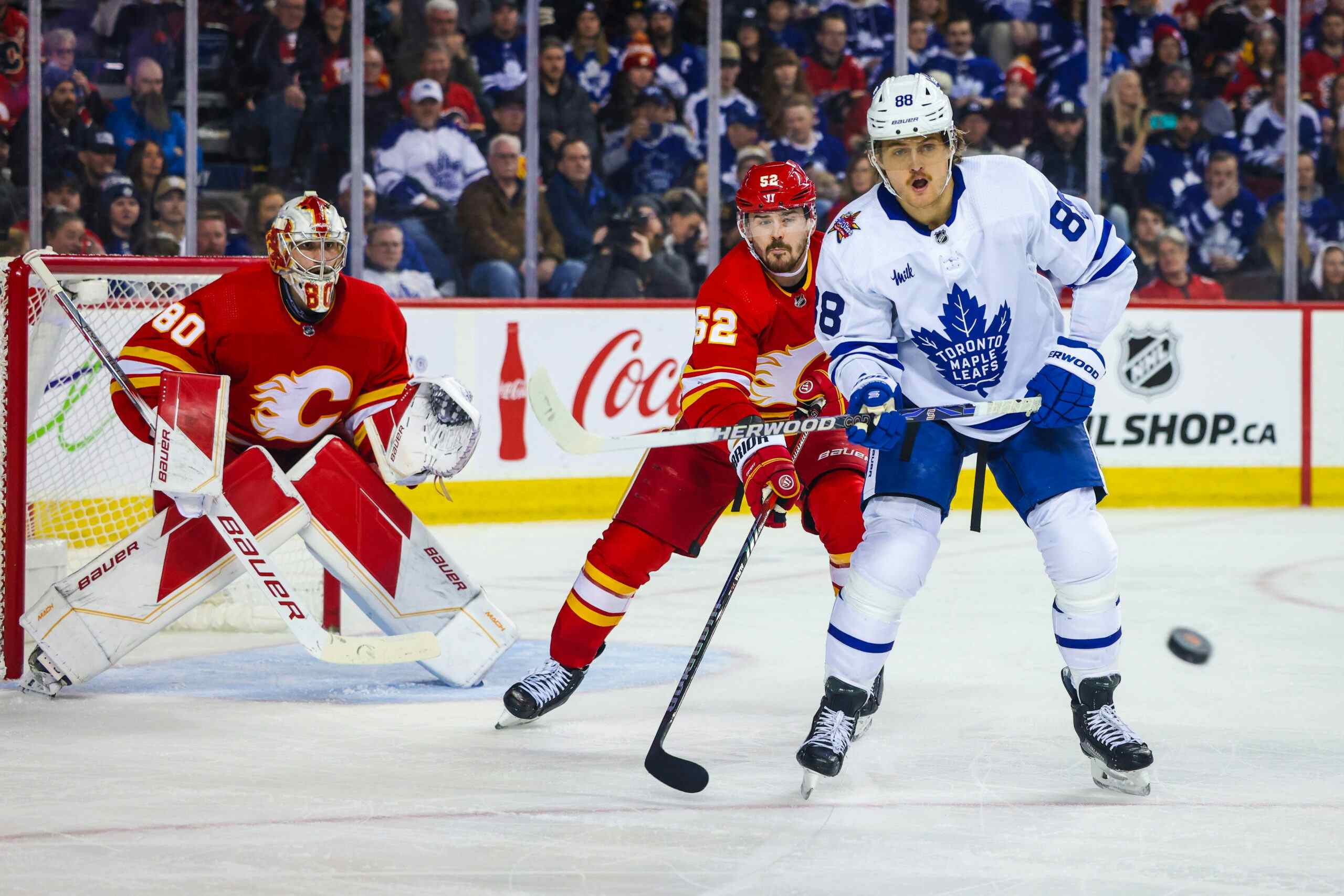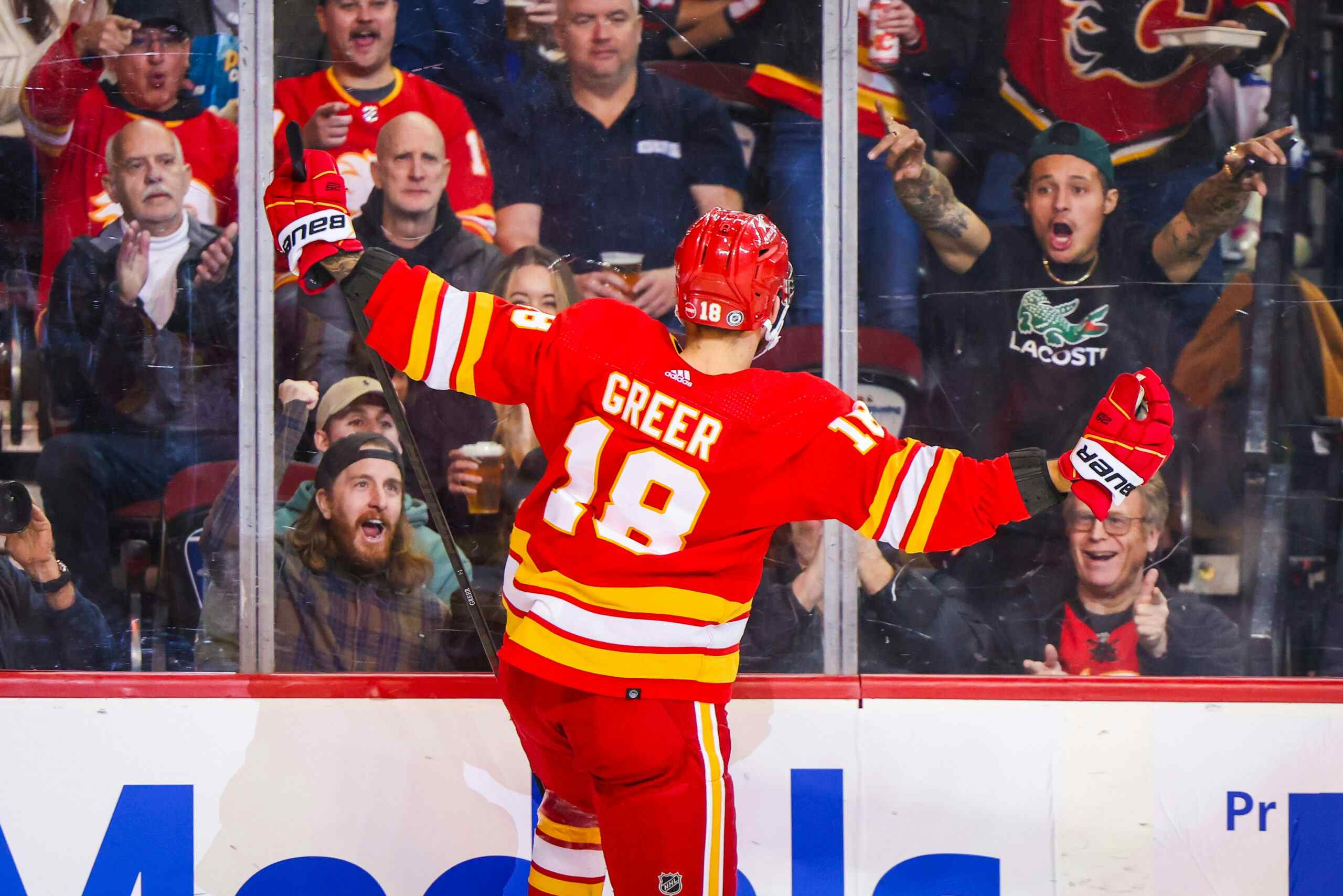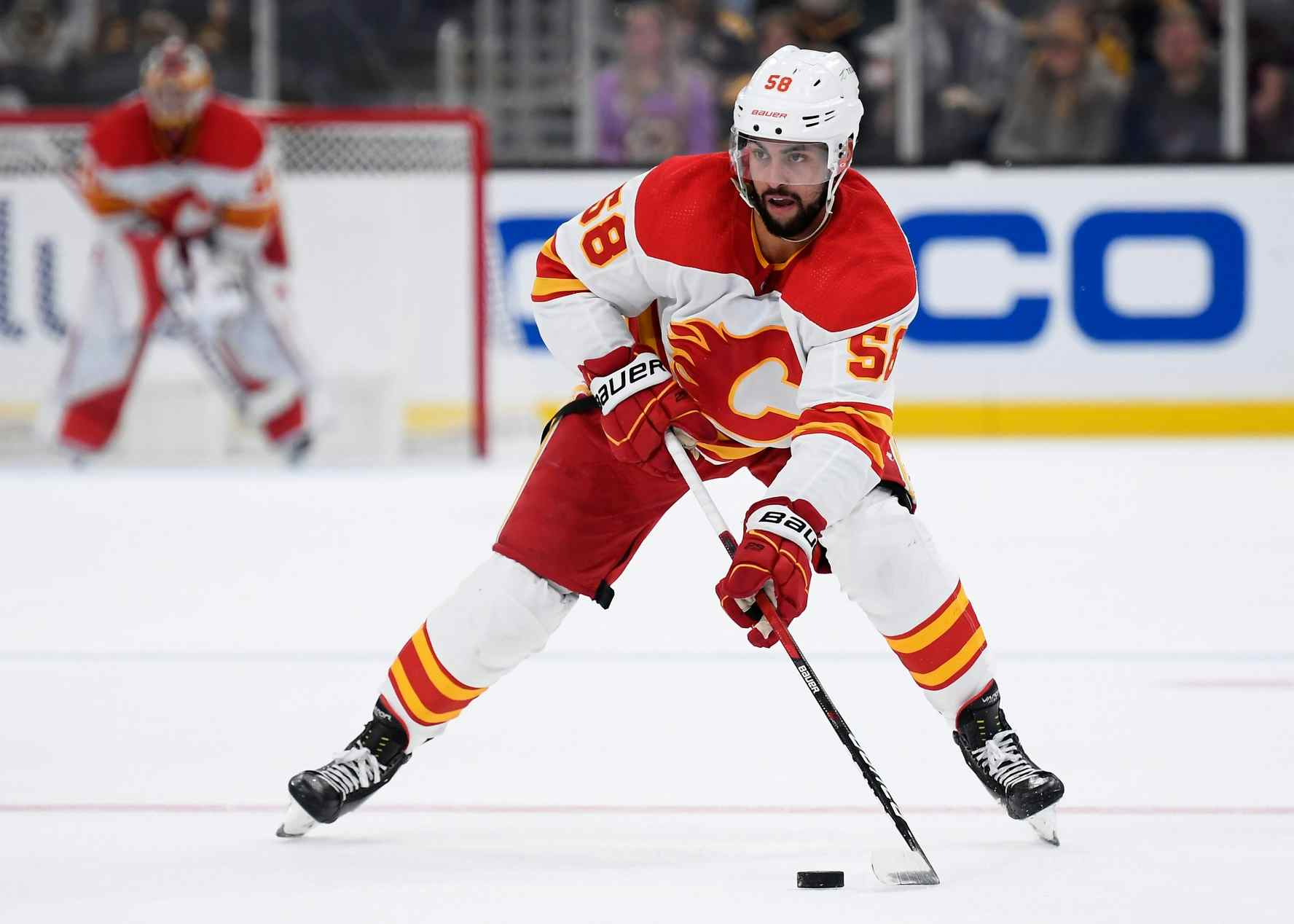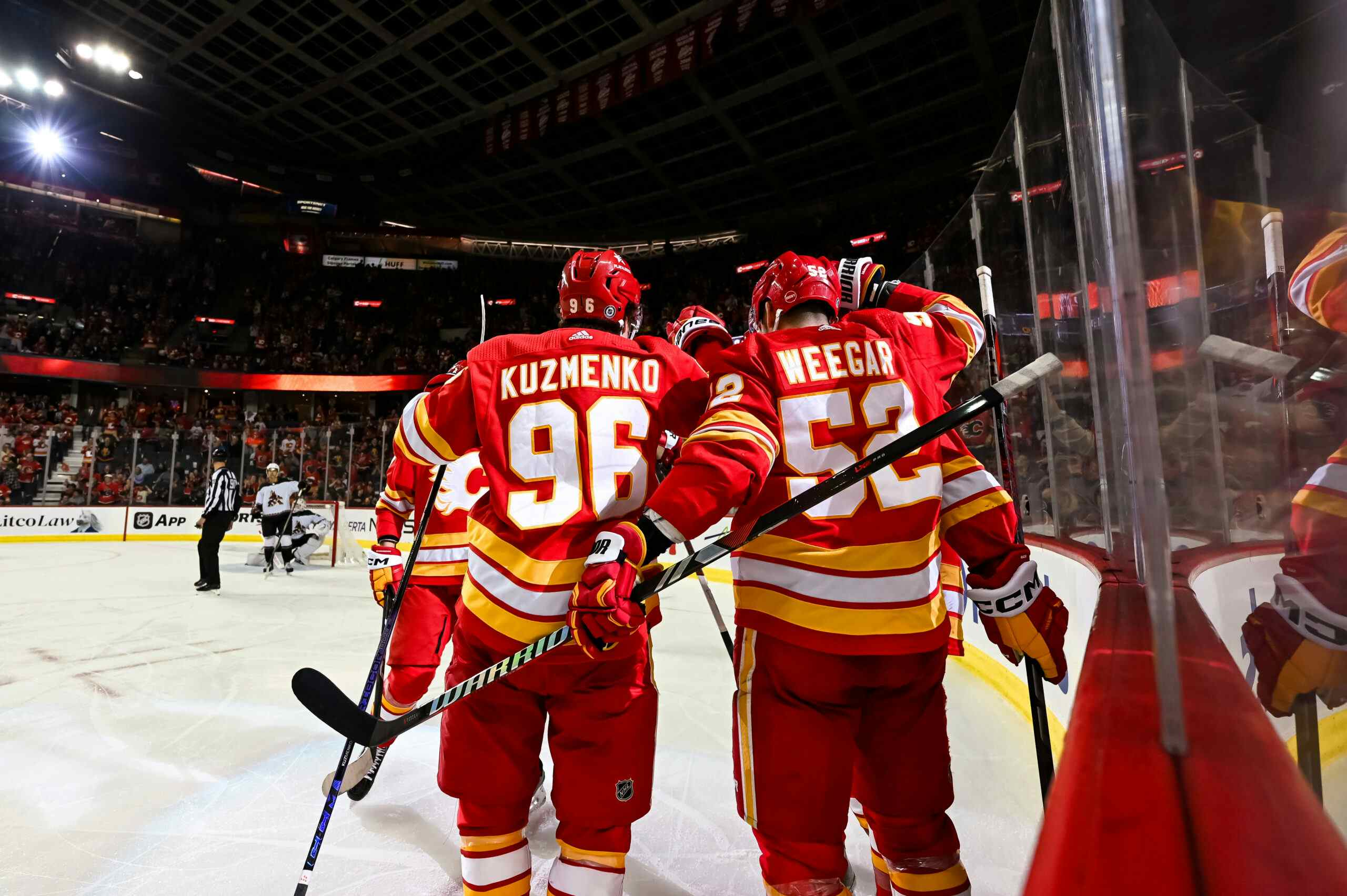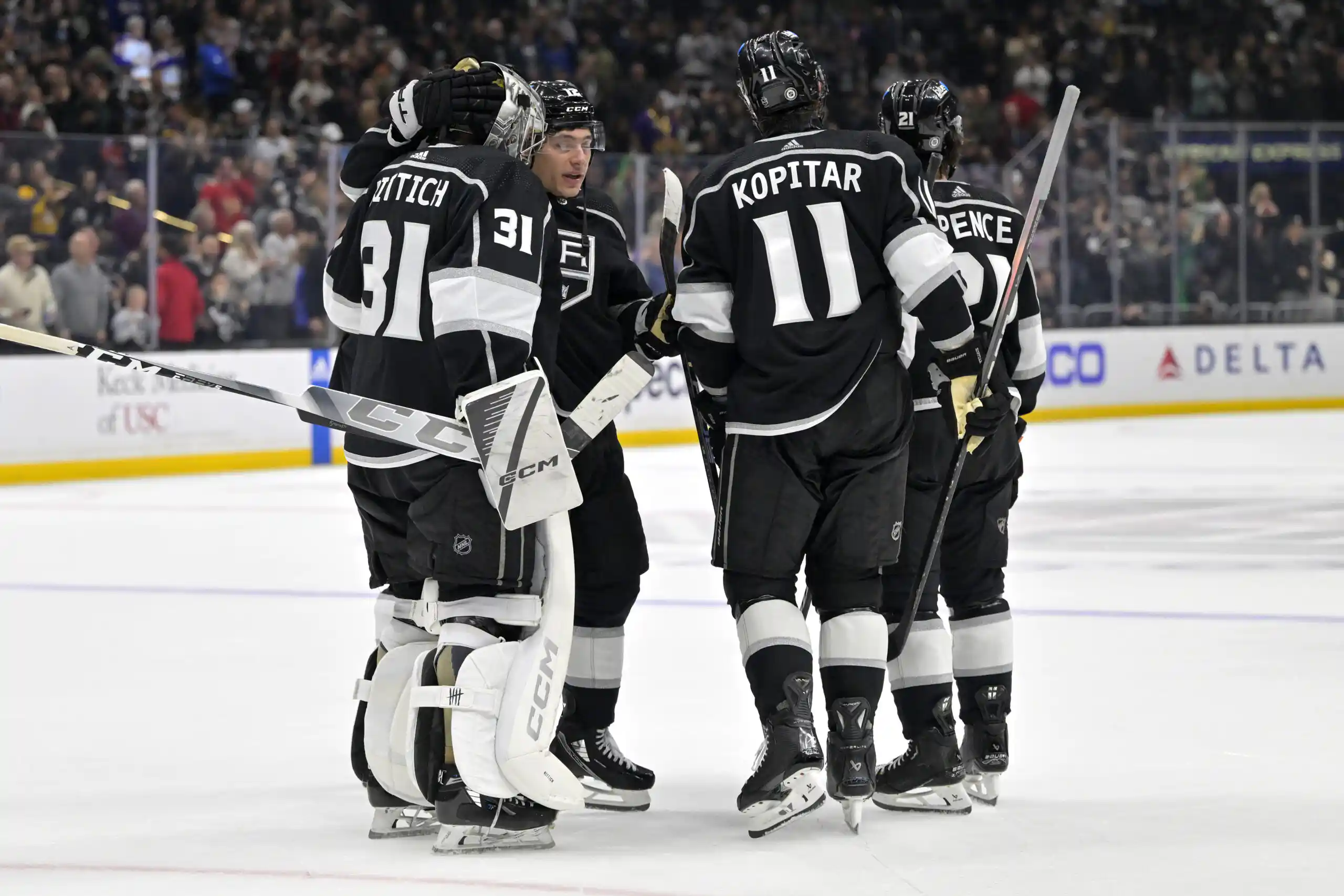Despite injuries, Mark Giordano had a Norris-worthy season
By Ari Yanover
8 years agoA torn bicep, and that was it.
It shouldn’t have been. It really shouldn’t. The year before, it was a broken ankle on a blocked shot. This time around, a fluke play on a penalty kill in the dying minute of an all-important win. He took to warmups before the next game, but that was it: Mark Giordano’s season was over three-quarters of the way in.
With that, too, were his chances at a Norris Trophy, gone for the second season in a row thanks to injury. He was the favourite to win it early into the 2014-15 campaign, but just like that, 21 games were lost, and with them, the chance for some hardware.
Giordano is still attending the NHL Awards, but as a finalist for the NHL Foundation Award, not as recognition for his outstanding play as a defenceman. Instead, one of Erik Karlsson, PK Subban, or Drew Doughty will take home that honour.
Was he better than them? Yeah.
Points, points, points
The Norris is, sometimes, more of an Art Ross for defencemen than actual recognition for a defender’s overall play. It helps, then that Gio kicked off his year with five points over the first four games, quickly taking the lead as the top-scoring defenceman, not to mention one of the highest scoring players in the entire NHL.
His season-long scoring streak lasted nine games, during which he had 14 points. He had four multi-point games in a row, and eight overall, including two three-point games. When his season ended, he was still the leading scorer for defencemen with 48 points overall. (Kris Letang was second with 47.)
To put it simply, Giordano exploded out of the gate, and never really stopped. His longest scoring drought lasted all of four games, and he was only held off the board 23 times. Otherwise, Gio scored in 62% of the games in which he played.
There’s no guarantee that had he not gotten injured, he would have ended up with the 65 points he was projected to have at the time (Karlsson ended up scoring 66; second place were Subban and Brent Burns with 60 each). But there really isn’t much reason to believe he would have stopped all together; especially not when his team was pushing for a playoff spot, and its top line of Jiri Hudler, Johnny Gaudreau, and Sean Monahan was just about to really take off.
Even without the final 21 games played, Giordano finished 13th overall in defencemen scoring: one point ahead of Norris finalist Doughty.
Context, context, context
Of course, when it comes to defencemen, there’s more to their play than scoring. Points from the backend are nice, but they’re a bonus. Their main title is right in their position name: they’re defencemen. They’re supposed to defend. And if you’re a top guy, you can do it in the most difficult situations.
As illustrated by War on Ice, that was Mark Giordano; and doing a better job of it than the actual Norris finalists to boot.

All the Norris finalists made positive impacts for their teams, as did Giordano. Doughty was the worst, but of the finalists, he had the toughest zone starts. Karlsson did a pretty good job, but of all the finalists, he had the easiest circumstances: high zone starts (which played a role in his league-leading 66 points), and easier competition.
Subban was the only finalist to actually have a CF% rel higher than Giordano, and he played a more difficult level of competition than his fellow finalists, but again: zone starts. He was the beneficiary of time started in the offensive zone, which no doubt helped lead him to his 60 points.
Then there’s Giordano, skewing the chart. He played far more in the defensive zone than any of the finalists. He faced the toughest competition. He posted the second-highest CF% rel while doing that. And remember: while his circumstances were substantially more difficult than everyone else, he was scoring more than all of them the entire time (and still scored more than Doughty, even though the finalist had 21 games to pass him).
Yes, Giordano lost a quarter of his season, but that’s a snub. He was the league-leading consensus pick for the Norris Trophy before his injury, and if the voters’ choices were Karlsson, Subban, and Doughty after him, then his missed 21 games shouldn’t have made a difference. Karlsson and Subban’s selections were understandable, even if they were sheltered. Doughty’s makes no sense.
Egregious, egregious, egregious
In 2013-14, Giordano lost 18 games of what ended up being a surprising breakout season, both offensively and defensively. Those 18 games ultimately played a part in keeping him off the Olympic team, costing him Olympic Gold. They also may have impacted voters’ decisions come awards time.
Giordano quietly broke out that season, and not enough mainstream heads turned in time to catch it. Duncan Keith ended up winning the Norris, with Zdeno Chara and Shea Weber as runners up.

Keith was second in defencemen scoring that year, and far more sheltered than any of the other finalists. In contrast, Chara and Weber – and Giordano, for that matter – not only played more difficult competition, but started in the defensive zone way more often as well. If you want to go off points, Weber only had five fewer than Keith despite his much more difficult circumstances; if you want to go off possession, Chara nearly matched him relative to their teams despite not being sheltered at all.
If you want to go off points, maybe Giordano didn’t belong there (although, considering he scored 47 that year, and Doughty did this year, maybe he probably did). If you want to go off everything else, he was the clearcut winner.
Here’s to a fully healthy 2015-16 season so Mark Giordano can get his friggin’ Norris already!
Recent articles from Ari Yanover

